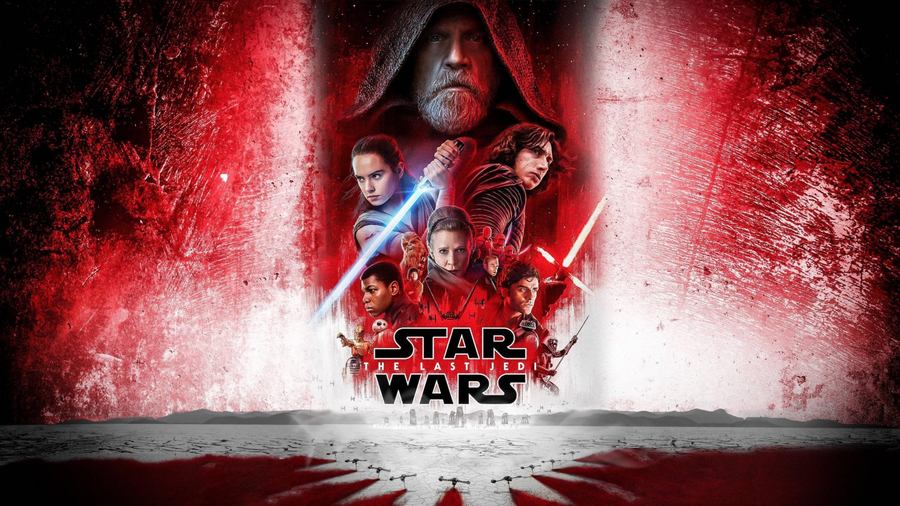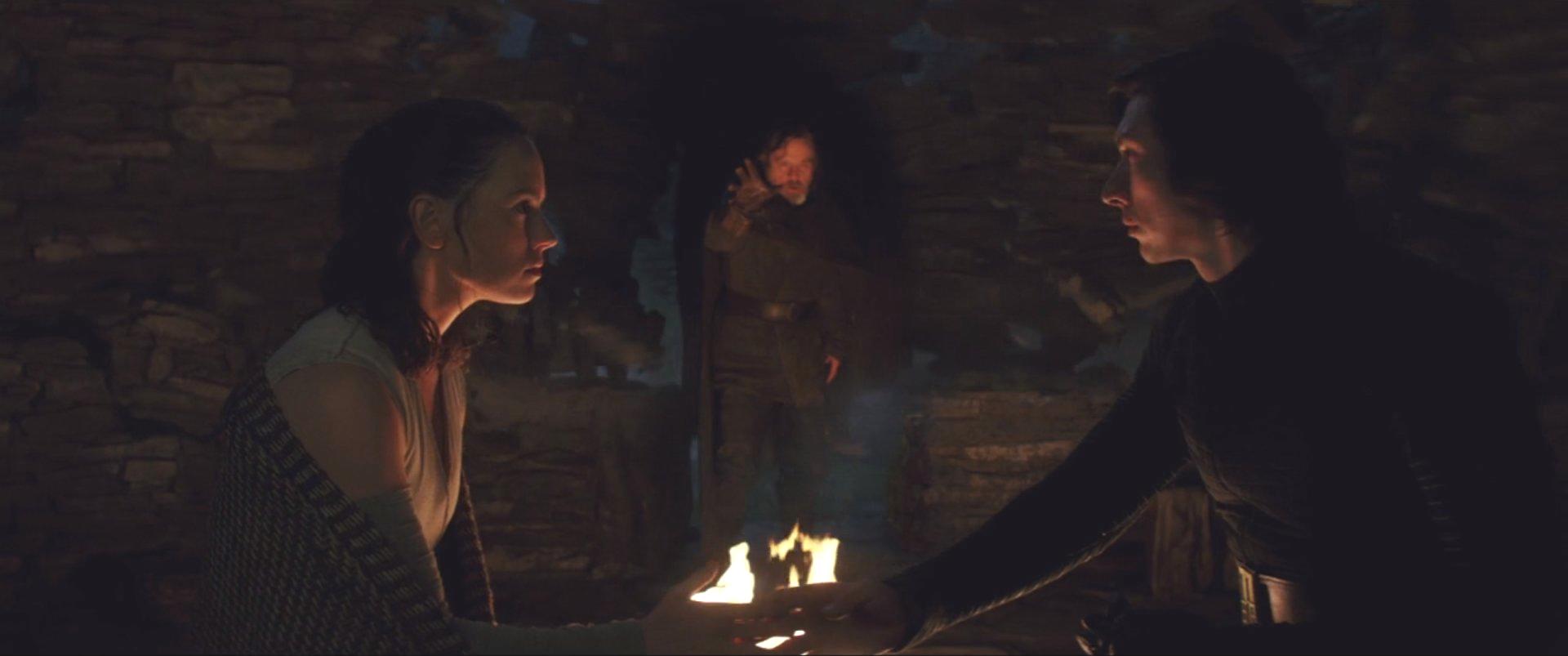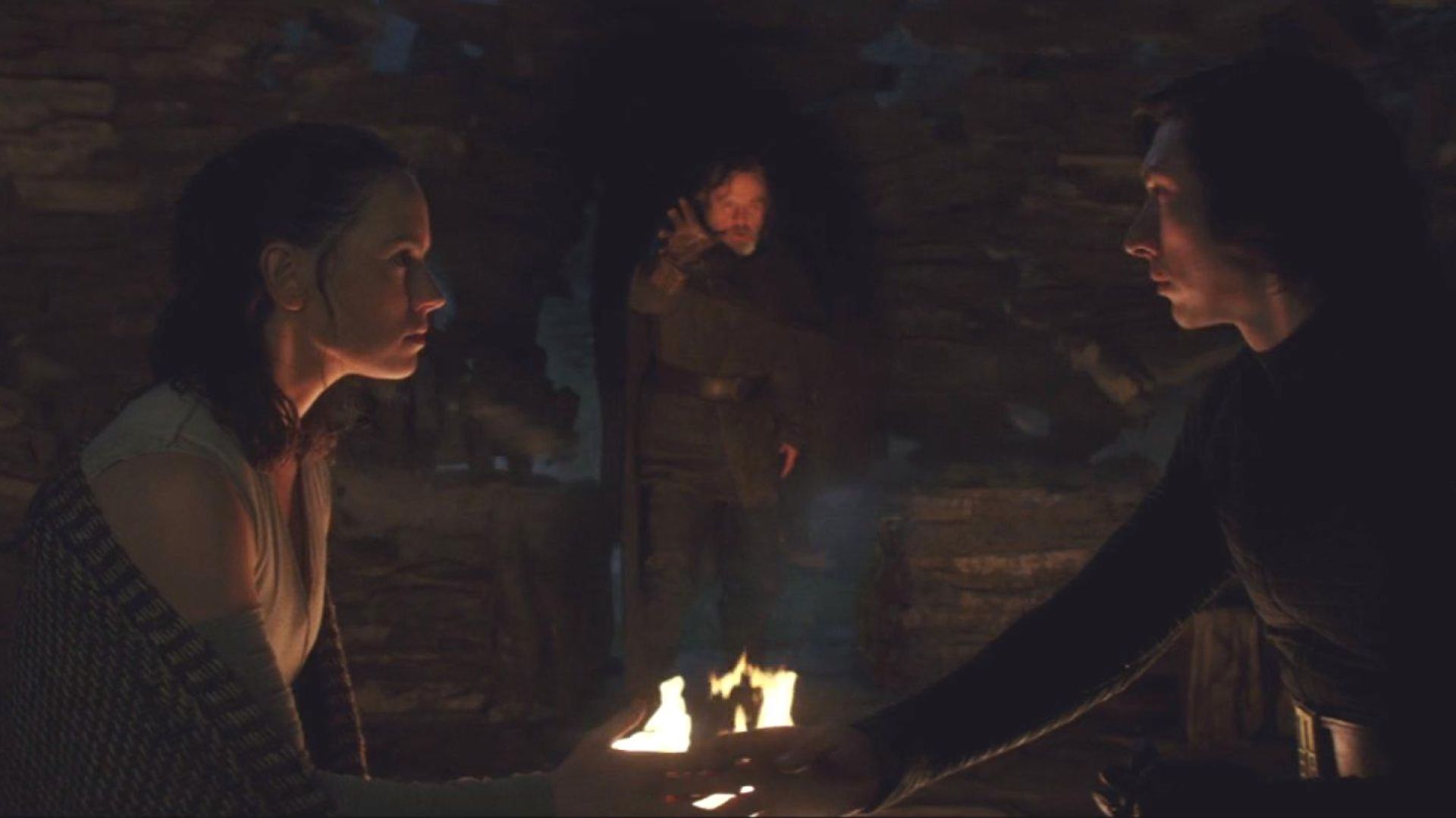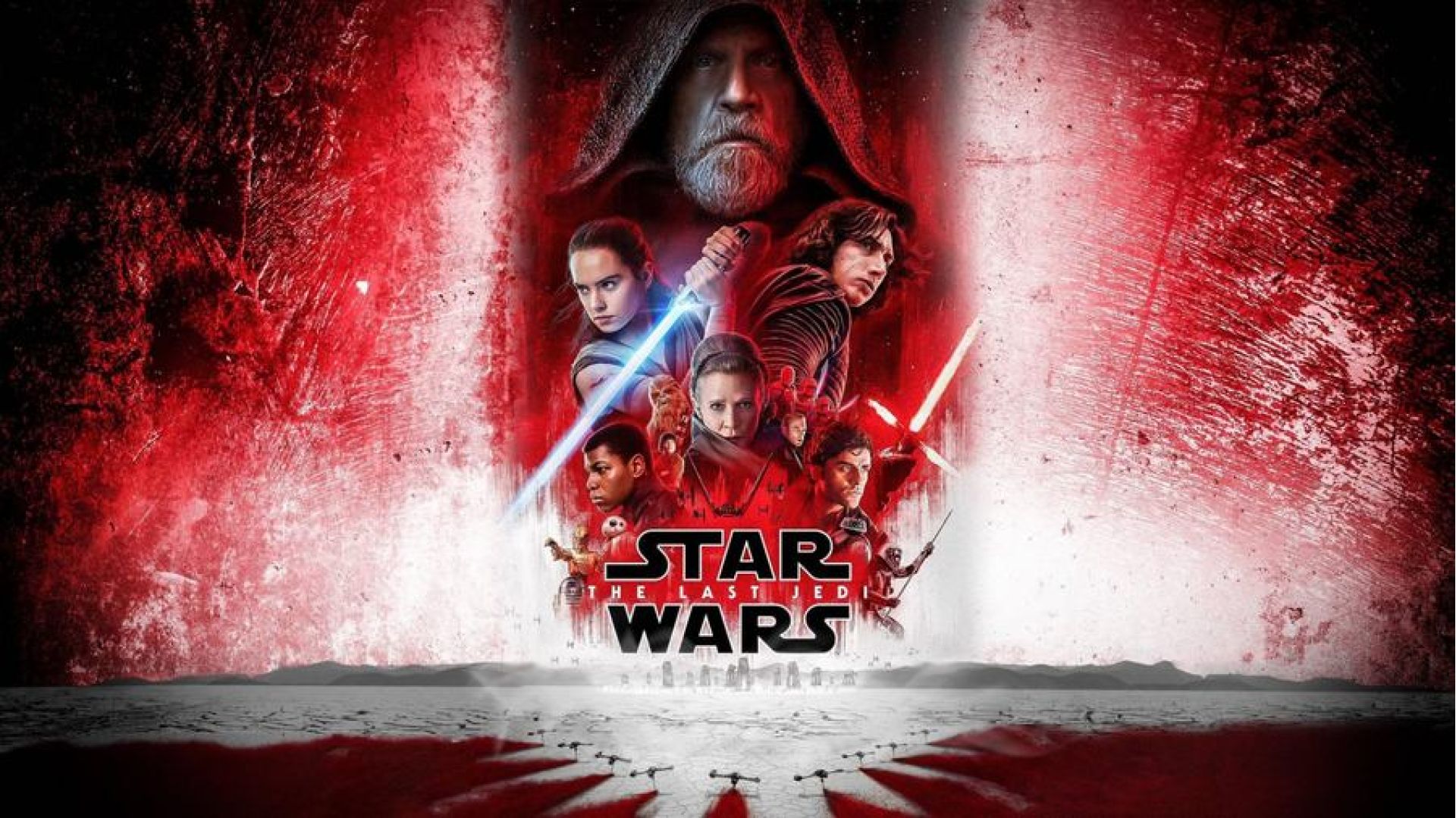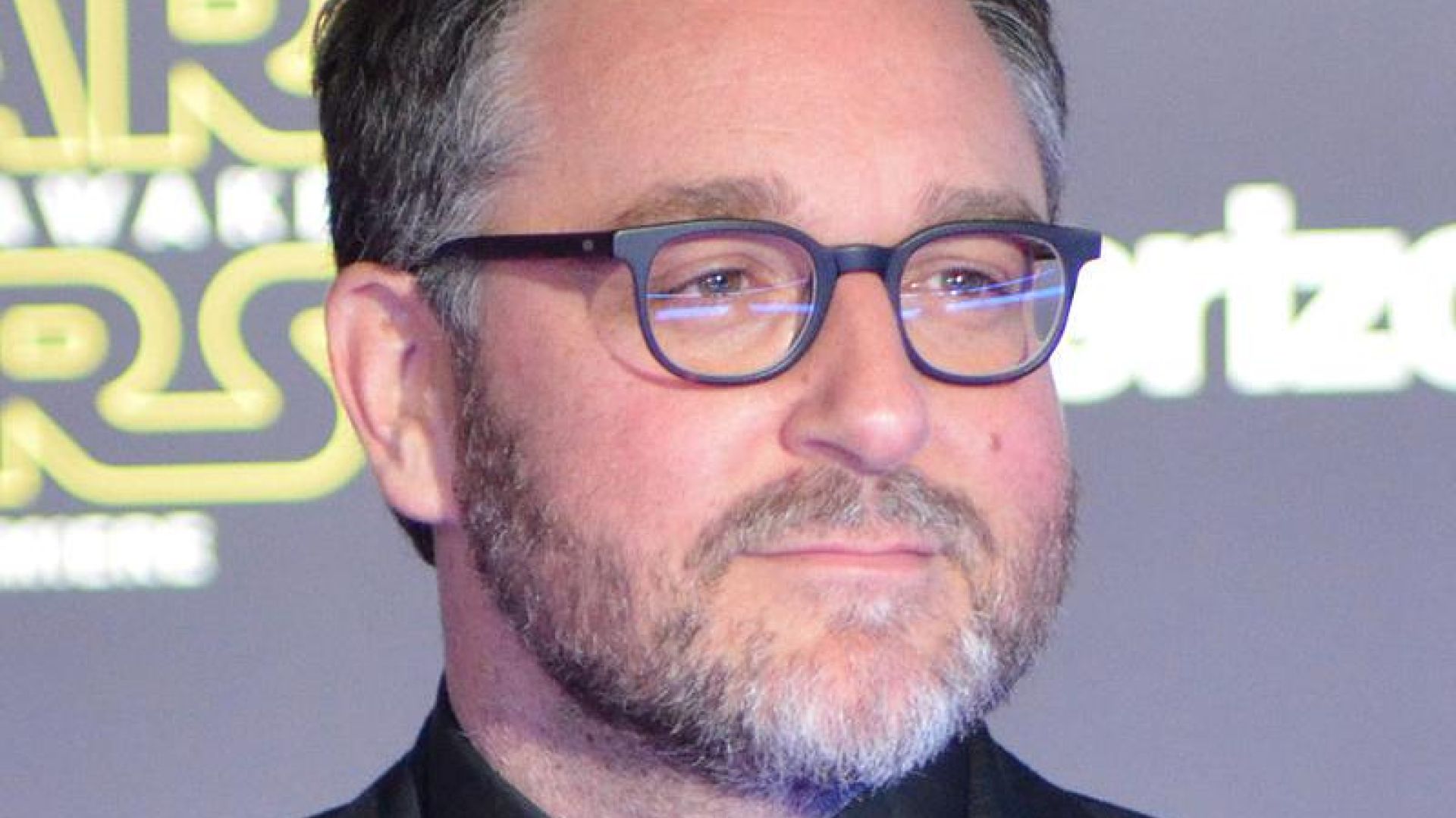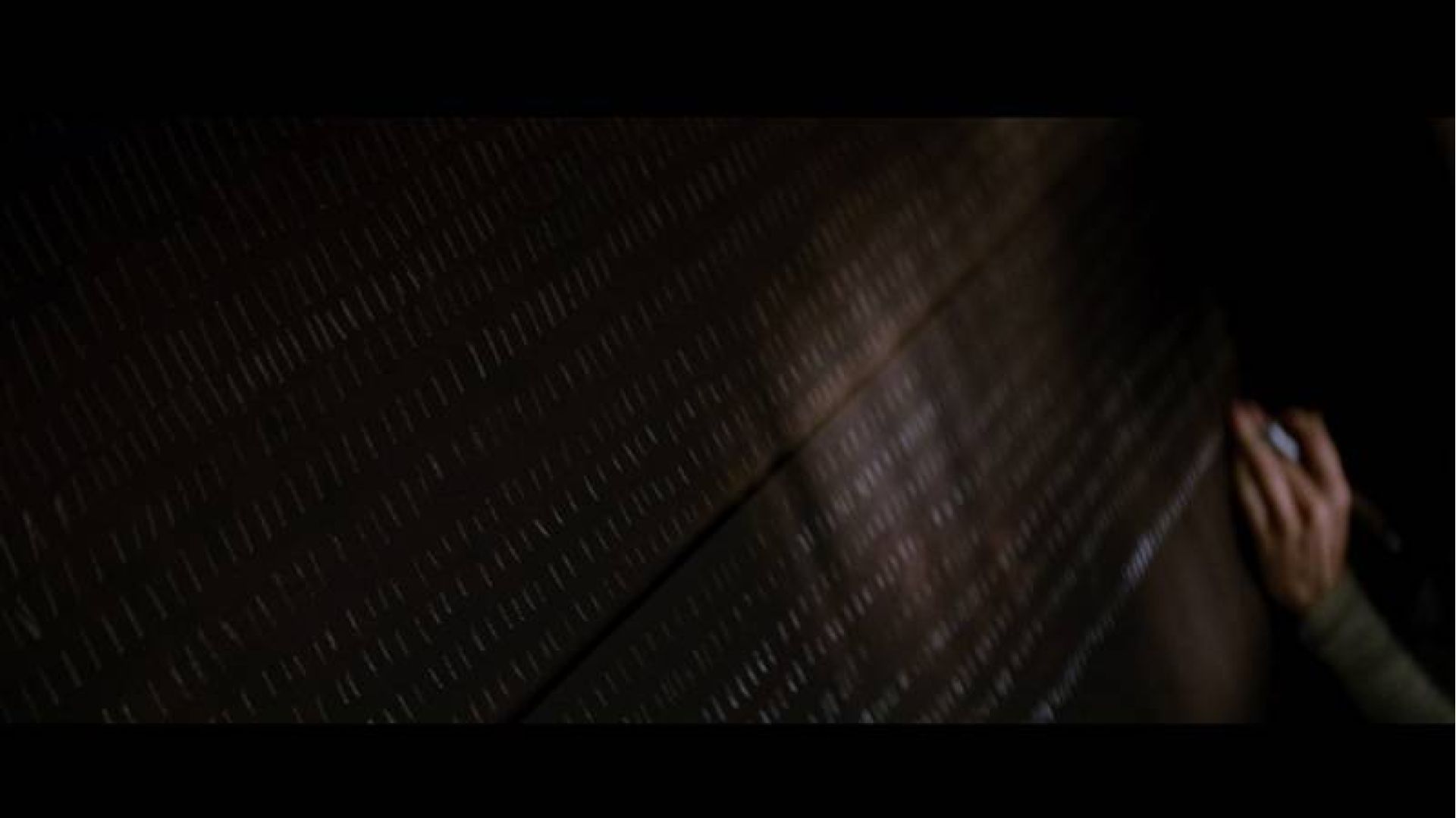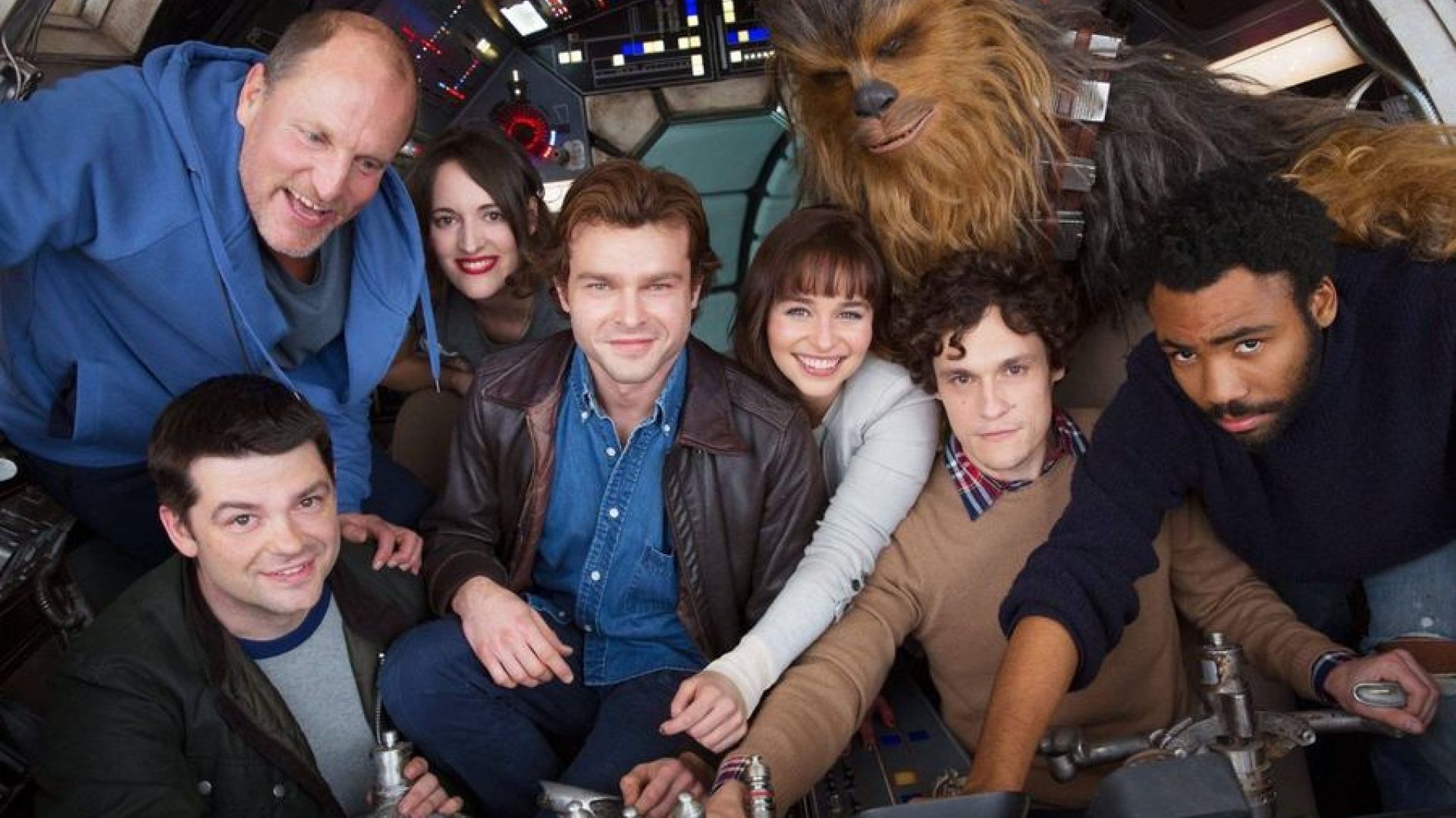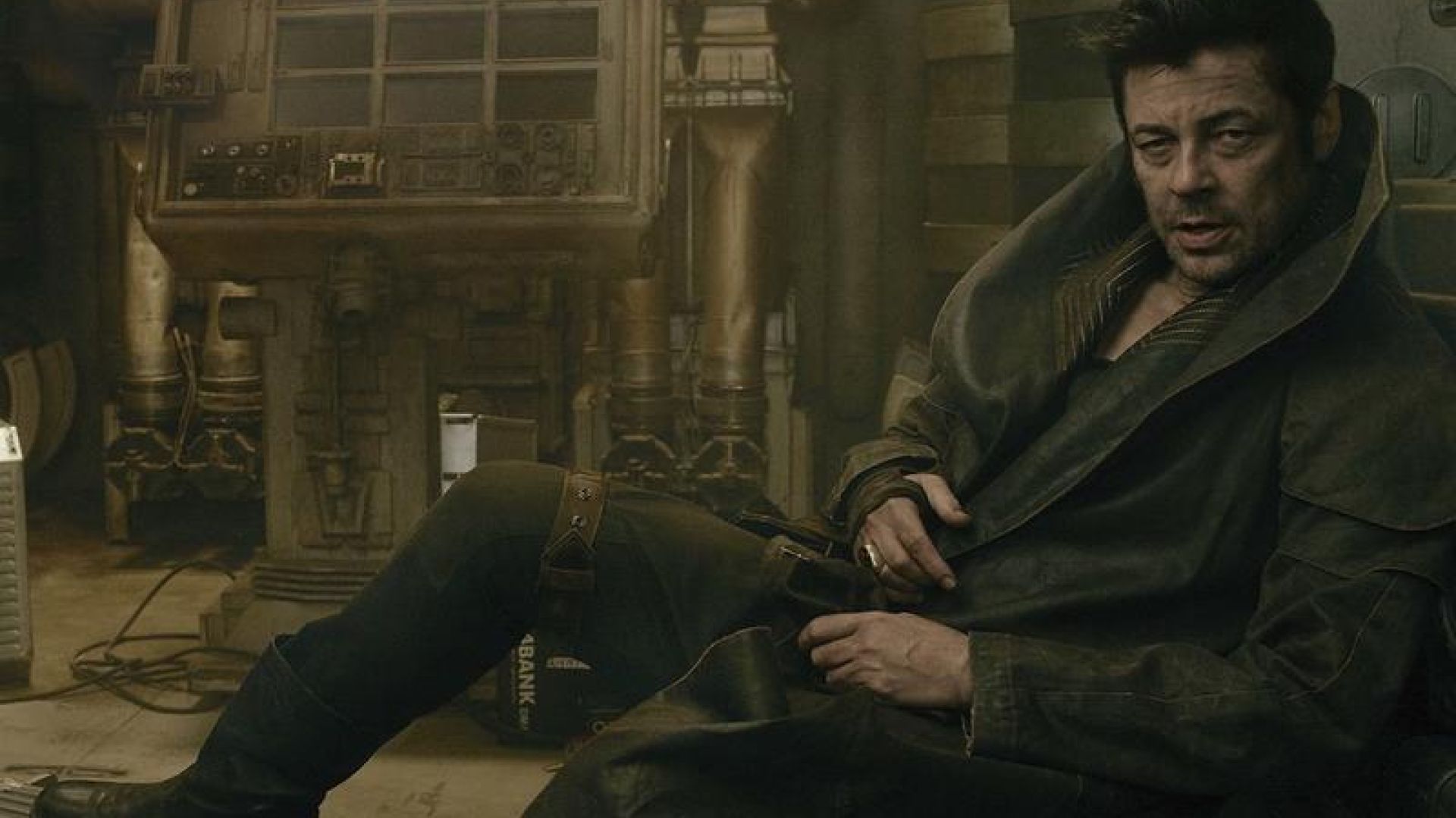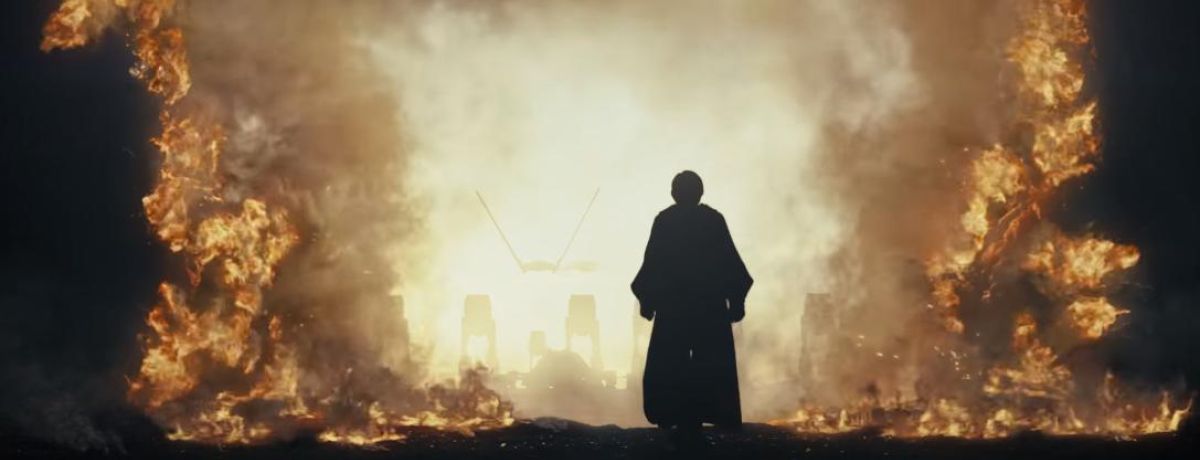
Three Problems With The Last Jedi Backlash & How We Fans Can Become Stronger Thinkers
What did you think of The Last Jedi? Did you love or hate it? Do you know why?
Since Star Wars The Last Jedi came out in December, I've sought out numerous takes (online and offline) on the film from people who loved it and people who hated it to better understand the movie. Much of this was driven by my love of Star Wars and initial trepidation of the film. While I moved towards liking The Last Jedi, there is an abundance of fans who despised it.
I'm trying to watch the last Jedi again to try to give it the benefit of the doubt but I just can't. There's so many things wrong with this movie. As soon as Luke tosses the light saber over his shoulder the movie goes to shit. It's like he's tossing my childhood away.
— Swany (@SwanyPlaysGames) March 17, 2018
In January, I explored why the film's expectations divided fans, why it's so hard for people to embrace something different, and how we don't remember well (and criticize way too easily). It was my way to inspire Star Wars fans to become better people. Much of the polarizing and drastic response was driven by expectations, and I was no exception. Many fans were able to parse out our expectations and evaluate the movie on its own merits (not based on what we wanted).
We want to go in to films without knowing anything... but with films like this even without seeing a trailer we take in this huge pile of expectations, and I'm pretty sure that's what messed up my perception of the film.
— Charlotte Gore is a Techno Bard (@CharlotteGore) April 10, 2018
In the following article, my aim is to encourage fans to become stronger thinkers and critics when we evaluate creative endeavors we like and don't care for.
- Is what we're watching something we personally don't relate to or is it actually of poor quality? Is what we experience in the film more driven by our expectations and the worldview we bring to the watching experience?
- Is it possible for a film to be well done and still not like it?
- Is our perspective limited? Are we ignoring problems or twisting what we experience? Is there more to the story?
What we value, matters. What we don’t, feels like a waste. What we expect, taints our perspective.
We humans quickly and shallowly judge people, places and things like many of the characters (Rey, Finn, & Poe) in The Last Jedi, and few people appreciate or understand the nuance in these questions when reflecting on a creative endeavor. I aim to change that through the insight and inspirational examples below. Let's strive to become thoughtful and thorough evaluators.

Life is Hard. Business is Challenging. The World is Uncertain.
Leaders, freelancers, and entrepreneurs: Get stories & systems, for navigating the challenges, in your inbox.
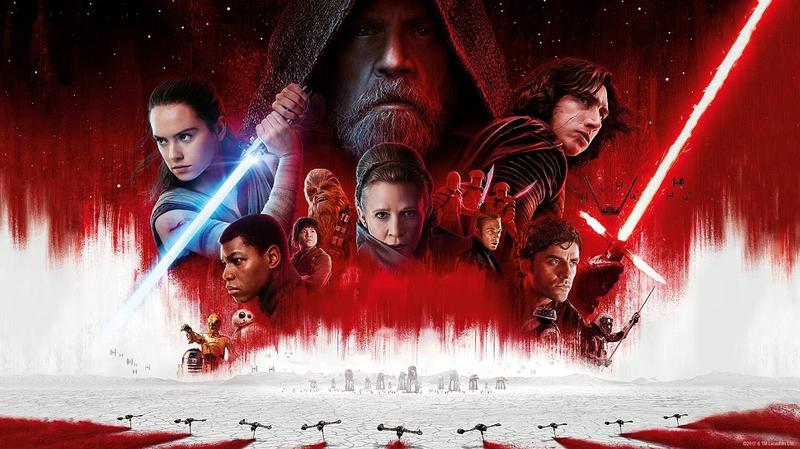
What Are The Three Problematic Patterns With The Last Jedi Criticism?
My reaction to both the Last Jedi trailer release and my first viewing of the movie was mixed, but after further reflection and viewings (x6), I came around to appreciating and enjoying the movie. When I went down the road of criticizing the craft of the movie (writing, directing, editing, etc...) there's a superficial layer that makes sense to chastise, but it doesn't hold up when taking a deeper dive.
And as I explored the film's criticisms, my issues with it, and engaged with others who disliked the movie, I noticed three patterns with people's negative assessments (including some of my own!).
-
Fans who loved the original films and despised The Last Jedi held a double standard on their evaluation of these two sets of movies.
-
People unfairly evaluated The Last Jedi as a standalone film while comparing to the original films as a trilogy, instead of individual stories.
-
As moviegoers, we bring different experiences and relate differently to stories. Much of the judgment I've explored is simply a matter of perspective, or a certain point of view, not poor storytelling.
While there are some exceptions (very few), most dissections of the film fail to separate the Star Wars elements from the craft of storytelling or film-making and are actually a veil for preference or missed expectations. I found the same pattern after reading every critic's negative review of the film (via Rotten Tomatoes), digesting tons of blogs, and scanning hundreds of twitter remarks.
We humans are emotional and inconsistent evaluators and thinkers. So, here's my write-up to help iron out the wrinkles and move myself towards a better understanding of this movie's criticism.
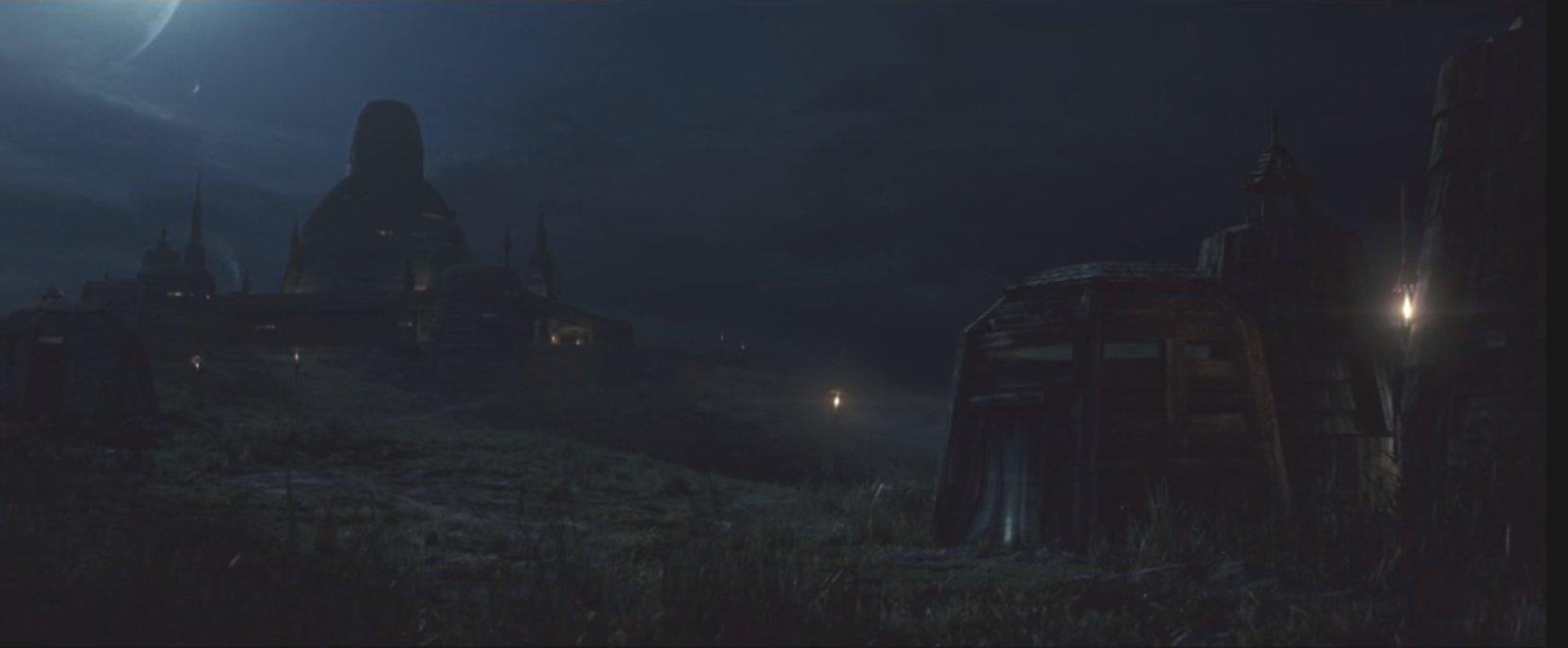
Backlash Pattern #1 - Inconsistent Criticisms Between The Last Jedi & The Original Films (4, 5 & 6)
The original Star Wars trilogy was filled with flawed plot points, wasn't a perfectly engineered story (Luke and Leia make out a lot ...), and had bad acting and annoying characters too. It's funny to see similar reasons used to prove the new ones are bad movies.
— Andrés Alvarez (@NerdNumbers) December 28, 2017
Many of The Last Jedi critics (professional or casual) are chronically operating with a double standard bringing a slew of accusations to the new film without realizing those same opinions applied to the original movies are just as problematic. Illuminating these issues is fine (especially if you don't like the originals), just make sure you're consistent or I won't be convinced of your argument.
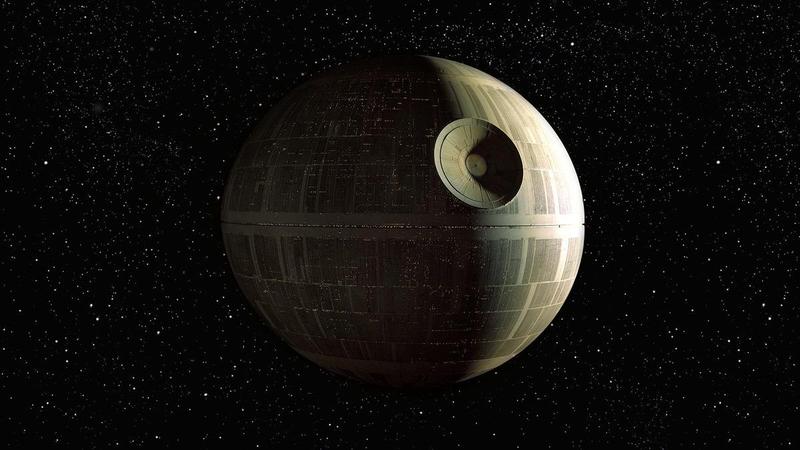
Exhibit A - The Slow Chase
For example, the film was chastised for the slow "chase sequence". While the reasoning for how the chase plays out is explained in the film itself, many Star Wars fans were not buying it. But here's the problem, there's a similar dynamic in A New Hope. In the third act of episode IV, the Death Star warps near the rebel base, but it arrives where the planet is between the ship and the rebel home. It has to fly around the planet so it can destroy the moon base, which takes up the final twenty minutes of the movie.
Why didn't the death star simply jump, so the moon was in sight from the get-go? It's the same as people asking why the first order didn't just warp speed close to the resistance ships in The Last Jedi so they could quickly destroy them. Plus both of these sequences also serve different purposes. The Last Jedi chase sequence portrays an impending doom while the end of A New Hope is building up a sense of urgency. Both serve the story in a specific way.
Additional Examples of Inconsistent Criticism
While there are many of these types of story problems to choose from, here are three different examples of this inconsistent criticism that emphasize this pattern.
-
Many criticize the lack of backstory development for Snoke. But this lack of history is also missing for the mysterious evil Emperor. Why did this lack of backstory ruin one of the two films while the other did not? Plus, we very well could get more insight on in the next film about him (where relevant to Kylo).
-
It seems the bombs falling in The Last Jedi have arisen to meme status (even though the portrayal is accurate). Well if you don't remember from Return of the Jedi after the ships shoot the death star core, it begins falling (2hr 2 min). Why didn't this gravity problem ruin Return of the Jedi for most fans?
-
Luke is also criticized for running away into exile. Would a Jedi ever do that? What about Yoda & Obi-One-Kenobi? After an epic fail, why would anyone abandon what they know? Clearly, this concept is not unlike what has come before.
These are not invalid critiques of the movie, but illuminating them demonstrates the double standard. In the Last Jedi, these types of issues are reasons why some people hate the film, where they easily accept these same issues in the original movies. They hold a double standard, and many times don't even realize it.
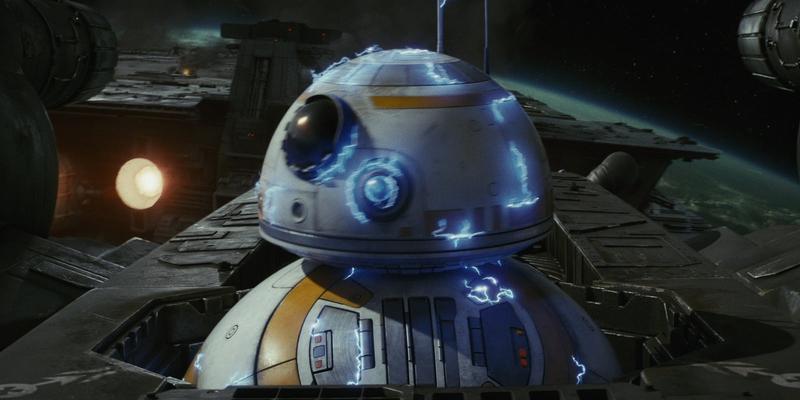
My Inconsistent Criticism of The Last Jedi
Unless you like living with inconsistent beliefs, I'd recommend honest reflection. Here's an example with me at the forefront.
With both The Force Awakens and The Last Jedi, I had an issue with some of the contemporary language used throughout the films. The scene between Finn and Rey, when he's asking about her boyfriend, and the sequence when Luke is talking about the Jedi as a religion both bothered me.
I didn't like this contemporary element of the movies, but when I went back and watched the original films, the same element existed there. The force was talked about as an archaic religion and Han talks about hot-wiring the security door. Are there even cars in Star Wars? In a similar vein, my wife took issue with the humor throughout the film, but after she re-watched the other Star Wars movies, she found the humor was consistent with what had come before.
Have You Seen These Movies Lately?
In many cases, fans have not watched the original films for a while, and they forgot what was even in them (like I had). Even some of the critiques I've seen of The Last Jedi have me wondering if they remember what they saw or how many times they watched the movie. This was why in my previous The Last Jedi article, I talked about how we humans don't tend to remember well and how our memories can be tweaked by others.
Rey in the Last Jedi zealously jumped to conclusions and attacked (verbally and physically), only to realize her assumptions and assessments were wrong or incomplete. When she chastised Kylo for destroying the Jedi temple, it was based on her surface level understanding of the betrayal as shallowly told by Luke. She thought she knew everything, but she knew very little. Much of the fan's response is like hers. We need to pause and take time to reflect (assuming we care enough about Star Wars to do so).
For me, I want consistency when evaluating different stories and movies. If I'm going to challenge The Last Jedi for reasons that are also applicable to the original films, I need to do so accurately and consistently. If I'm going to hold to the fact I dislike The Last Jedi when the criticisms are the same or similar, my reasoning for not liking The Last Jedi must be explained outside these reasons. And, I think they can be, but most reviews and critiques fail to accomplish this.
"Is anything better than finally finding your way home? Is anything worse than finally reaching home, and finding that you're still lost?" Matt Strover, Traitor: Star Wars Legends via TV Tropes
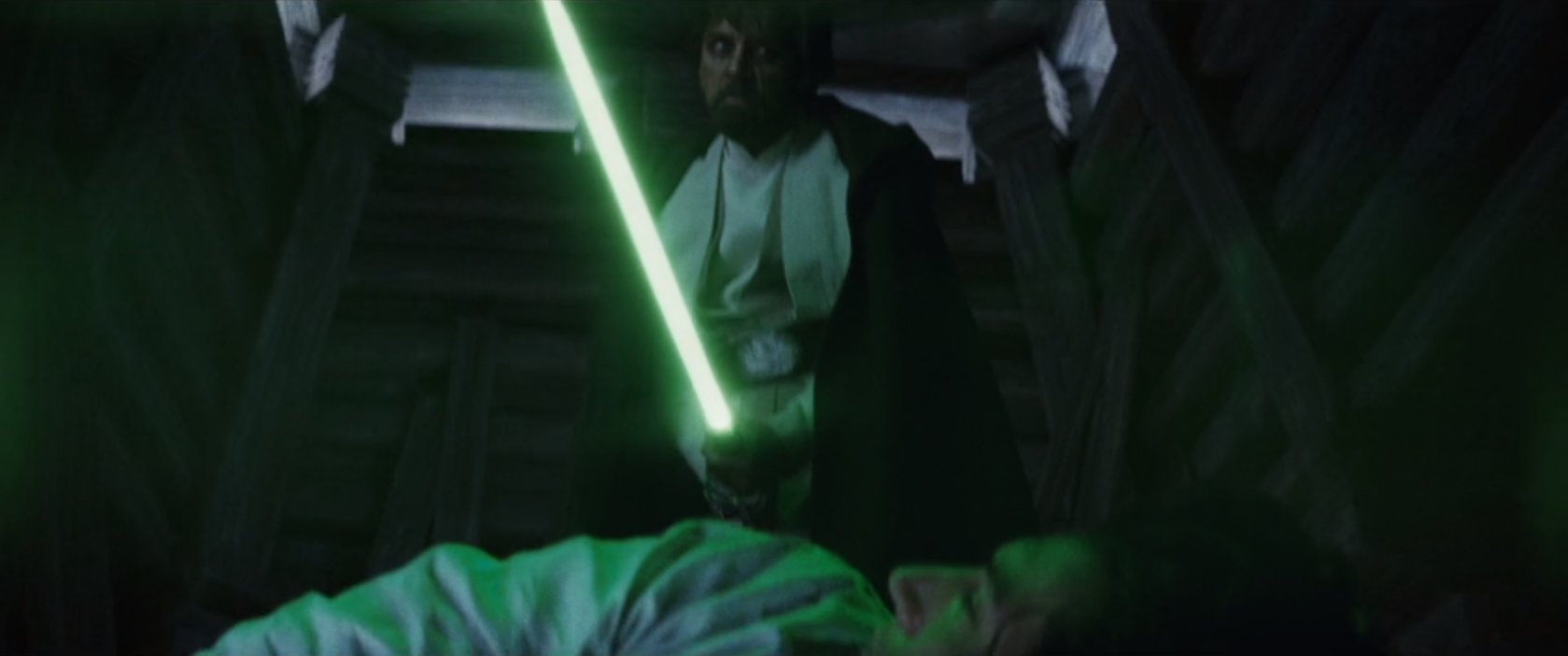
Backlash Pattern #2 - Unfairly and Inconsistently Evaluating a Series of Films Before Completion
"I started by writing the names of each of the characters, and thinking, ‘What’s the hardest thing they could be faced with?" - Rian Johnson
As a variation of my first point, I've also noticed Star Wars fans evaluate The Last Jedi as a standalone movie while they refer the original films as one trilogy. They treat the Last Jedi as a finished story when we’re only in the middle of the journey. For example, a friend expressed his dislike for the lack of attention that was given to Rey's response to learning about her parents. He felt this revelation had no effect on her character and no influence over the remainder of the story.
If I were to agree with this conclusion (I'll dive into why I don't in the next section on perspective), how do I reconcile that assessment with the previous films? When we compare this to Luke's revelation in The Empire Strikes Back, we don't see how Luke changes from the fact that Vader is his father until the next movie (yet another example of inconsistent judgments of the films). But when we fans think about Luke's story, we don't tend to segment them by the movie. Fans are judging a single film (The Last Jedi) against the original collection of movies. It's not a single film to single film comparison.
Hold Back & Act Generous When We're in the Middle of the Story
For example, many have criticized The Last Jedi for excluding the Knights of Ren, missing back story on Kylo and Snoke's story, and the separation of Finn and Rey for most of the movie.
These types of criticisms lack a big picture view of the overarching story. If the Knights don't arrive in the next film, Kylo's backstory is not further developed for the sake of moving the story along, and if Rey & Finn are separated, these criticisms would be valid, but they're made with assumptions of their absence in the next movie. They lack pause, and this was part of the reason why, in my last article, I concluded that we criticize way too easily.
In A New Hope we experience Luke, Leia, & Han together throughout most of the movie. There's a wonderful chemistry between those characters as they interact and challenge each other. But in The Empire Strikes back they're separated for most of the film. Is that movie a terrible one because our favorite characters are separated for most of it? If it was the only Star Wars film, it'd feel lacking, but in the context of a series of movies the separation actually creates more appreciation for what we love, and makes their time stronger and more enjoyable in Return of The Jedi.
Inconsistent and narrow quick shallow arguments are most commonly used against The Last Jedi, but they're the weakest, especially for a Star Wars or movie fan who must reconcile these challenges across all movies in the saga.
It’s similar to Kylo's lack of perspective about Luke’s momentary betrayal in The Last Jedi. Ren had been twisted and deceived and this perceived betrayal seemed utterly wrong, but he lacked the full picture and his own agency that led to the pivotal moment. He chose to ignore the complete story.
And this is not unlike many detractors of The Last Jedi. Maybe their expectations or values are driving their dislike of the movie more than the movie itself. There could be more to the story, which leads us to the last of my three points.
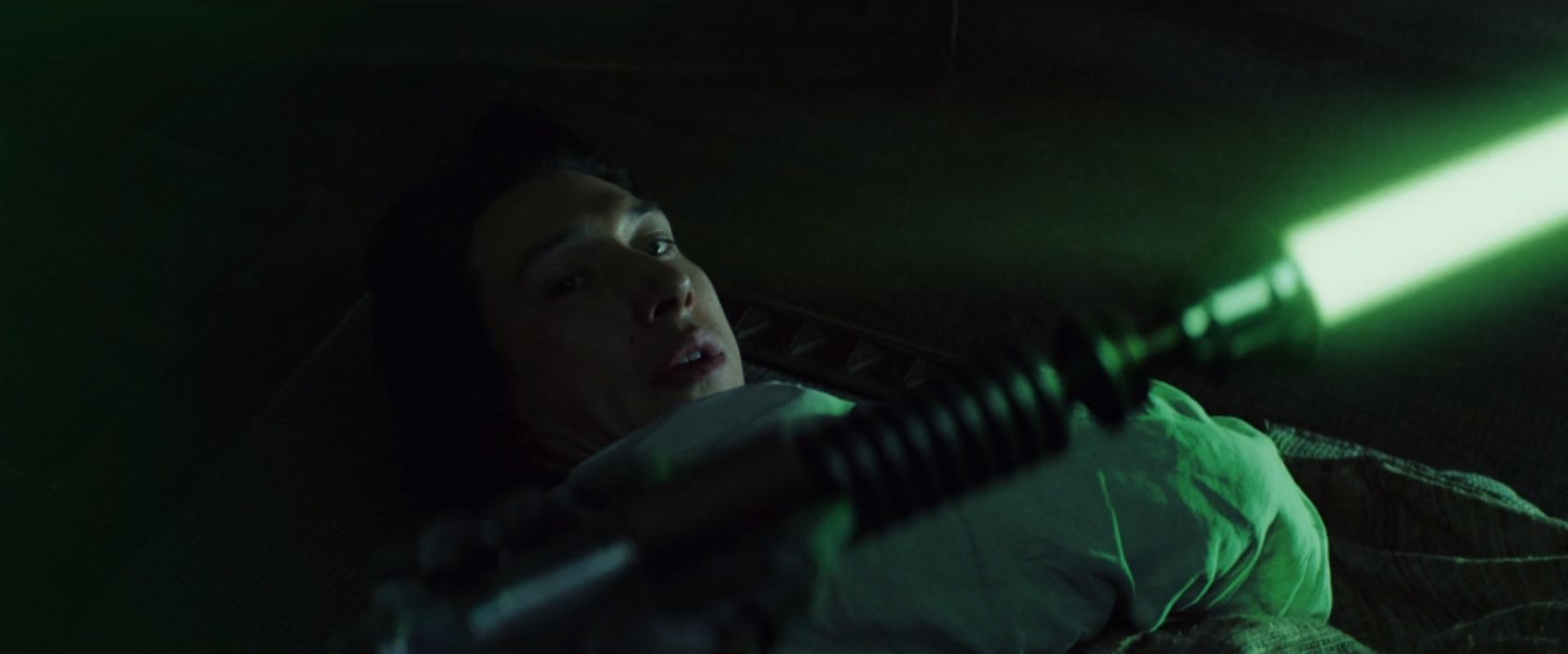
Backlash Pattern #3 - Much Of The Backlash Is Simply A Matter of Perspective (or limited understanding)
I think it was trendy to hate on it for one particular group, others like me just didn't parse the film properly because of the expectations we had going in, I'm extremely glad to have seen another side to it :)
— Charlotte Gore is a Techno Bard (@CharlotteGore) April 10, 2018
Now that we’ve dismissed some superficial complaints about the film with my first two points, we can dive into four substantial ones. Because The Last Jedi confounded expectations, some people struggled to see the story and messages found in the film. It’s when the expectations fade away and I watched the movie without the surprise twists and turns that I was able to appreciate and enjoy the movie for what it was.
I'll tackle four prominent criticisms in the following sections with two of the issues being ones I didn't have a problem with from the get-go while the other two required a deeper dive to come around and appreciate them.
- If Holdo Told Poe About Her Plan, None Of This Would Have Happened!
- Remove The Fruitless Canto Bight Storyline!
- Rey's Character Doesn't Progress!
- The Central Tree Burning Sequence (& the Entire Movie) Was Disgraceful To The Star Wars Legacy!
Let's get started with parsing out the perspective of these storylines and moments.
“At first I was freaked out but then I realized the things people were angry about are the things I’m most proud about," - Rian Johnson via Evening Standard
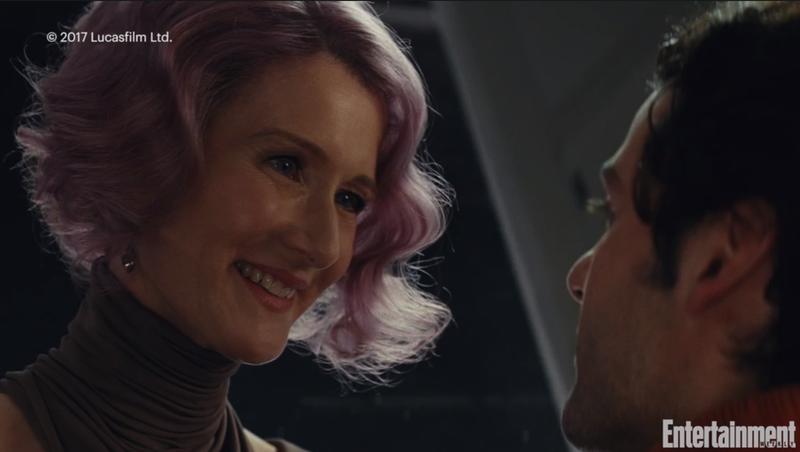
Criticism #1 - If Holdo Told Poe About Her Plan, None of This Would Have Happened!
The real problem with the Resistance bits is that it requires an idiot plot to work. If Holdo just told Poe what she was doing, none of it would have happened. And the movie doesn't give us any reason for Holdo to withhold information from Poe other than he's kind of a jerk.
— Hugo Nominee Reader (@noonanville) December 21, 2017
Many argue that Holdo should have quickly disclosed her retreat plan to Poe. From their perspective, I can understand how frustrating it would be to watch the movie constantly thinking if they just communicated, there would be no conflict and they'd work together.
The problem with this perspective is the underlying assumption that by telling Poe, he would simply agree and fall in line with her. The only aspect of the movie I found to possibly justify this perspective is Poe's acceptance of the plan at the end of the film. Unfortunately, I find the better explanation of his half-hopeful acceptance is due to the fact that his plan failed, he was forced onto the shuttle, his character grew, a friend (Princess Leia) was there to communicate and back the plan, and it was the only survival option available to the group.
When I was watching the film for the first time and the subsequent viewings, I never assumed that if Holdo told Poe, he would agree and follow her lead. I actually expected the opposite, and the film itself backs that perspective through Poe's initial failure to obey Leia's orders, his disappointment in not getting selected as the next in line leader, how quickly he was to jump to conclusions and act subversively, how he treated Holdo throughout the film, and why he gets angry (cowardice and vulnerability) with Holdo for fueling the transports. By him accidentally finding out about the plan, it ends up leading to the First Order finding out and causing the death of most of the resistance. Preventing a leak of the plan (the implication of the scene) is also a good reason not to tell everyone about it.
DJ heard about Holdo's plan when Poe told Finn over the intercom that she was fueling up the transports.
— Wesley van Wensen (@BoxerlessBossk) April 11, 2018
Which is also exactly why she told as few people as possible.
For me though, the film itself was not the only reason I expected subversion from Poe regardless of the plan's disclosure was because I've experienced being in the shoes of both Admiral Holdo and Poe Dameron. Desperate people have a hard time following directions, even when it's in their best interest. If people thought knowledge leads to obedience, or they were offended by the underlying dynamics and theme of this story element, it could have alienated them. And maybe during seasons of my life where I was living how Poe was acting, I may have been alienated as well.
When we watch a movie, what we bring and how we relate affects our experience of it. Since I could quickly and easily relate to both characters, I appreciated experiencing this story-line especially in light of how rare it is in movies, let alone Star Wars. This plot line is a terrific example of how people can watch and interpret it in drastically different ways.
"I really wanted to dig into this character and his weakness. The notion of turning from a hero into a leader seemed like an interesting notion." - Rian Johnson
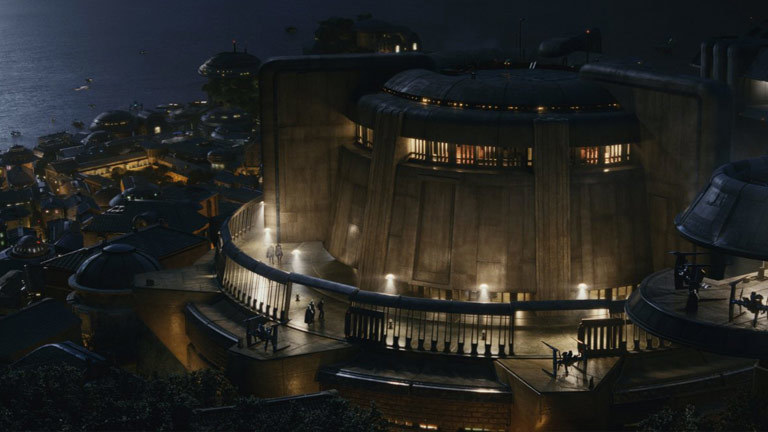
Criticism #2 - Remove The Fruitless Canto Bight Storyline!
"DJ’s betrayal “renders the entire plot we’ve seen pointless,” and that the entire Canto Bight sequence is a “disgracefully bad bit of storytelling.”" Alyssa Rosenberg, via Washington Post
Pride & Failure. In The Last Jedi, several of the storylines are designed to illustrate these consequences. But failure felt is more powerful when we watch and experience it. But, people have a hard time embracing failure, and I suspect that's also true when watching it play out.
Rey went to the Supremacy to team up with Kylo and end Snoke. Turns out she was a pawn in Kylo's game. She failed, and that was a waste for her storyline, but the underlying lesson of blind zeal (pride) was important for her character, much like it was for Luke in Empire Strikes Back (another example of inconsistent criticisms between movies).
During my first watch, I initially had a problem with Canto Blight for the same reasons. It seemed to slow down, distracted the main storyline, and didn't seem to mean much to the plot. But on subsequent viewings, I realized it was actually important for us to feel this failure and betrayal. It gave weight to decisions and actions while also disclosing subtle insights about the oppression of children, the grey dualism of those selling weapons to both the good and bad guys, and challenging the characters of Finn & Rose.
This is another example of how people perceived this storyline in drastically different ways, but for me, I was able to come around and appreciate its place in the story.
"Whether longtime fans like Johnson’s choices or not, though, it’s been odd to see the Canto Bight subplot dismissed as a waste of time, when it’s so clearly central to the film’s fundamental themes." - Noel Murray, via The Verge
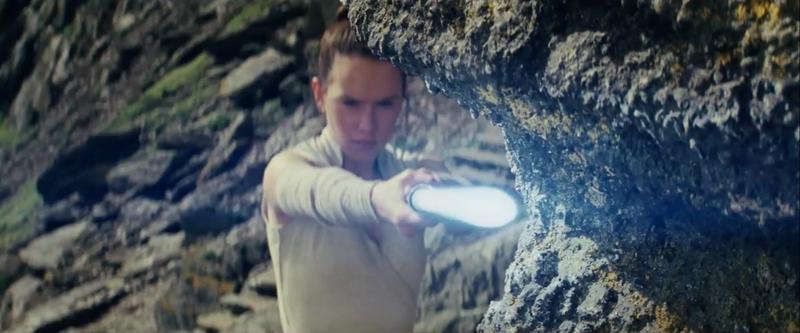
Criticism #3 - Rey's Character Doesn't Progress!
There is the prominent argument that Rey’s character didn't change or grow throughout the film, but its one I largely disagree with. In my first watch, I was disappointed by her role in the ending (which I came around to liking), but I very much enjoyed her story up to the Crait sequence.
In The Force Awakens, we witness a character (Rey) in denial about being abandoned by her parents. By this point, she has a shallow understanding of good and evil. Out of her zeal, she also sees Kylo as a monster because she witnessed him kill his father and eventually learns how he betrayed Luke. As the story plays out in The Last Jedi, she learns more of the truth with Kylo and Luke and is forced to face her naivety. She goes from seeing Kylo as evil to sharing an intimate moment and eventually teaming up with him to take down the praetorian guards. Through this relational journey with Ren, she goes from calling him a monster to sharing her deepest secrets. And then, she closes the door on him at the end as to let go of her extension of goodwill.
That journey seems quite drastic to me. She's a character who acted with limited perspective but came to recognize there is a complete set of perspectives. This movie was about the characters learning how insufficient they were for the leadership role they sought, but by the end, we got a realistic glimpse of them all stepping up to the plate for what I expect to be a bold and fun film in episode IX.
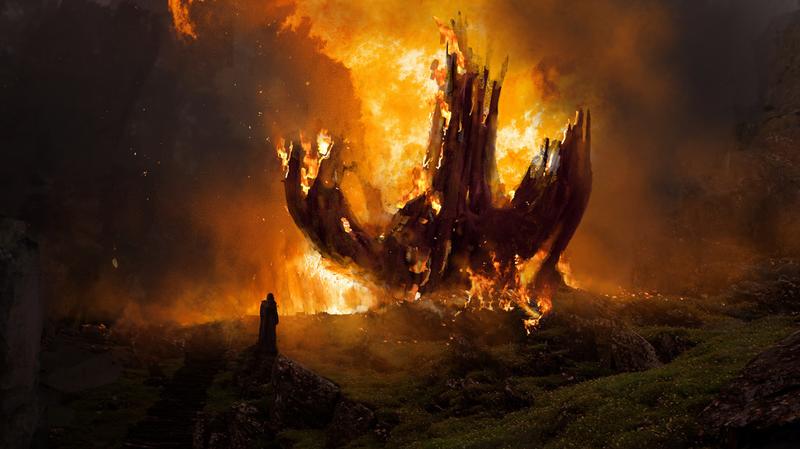
Criticism #4 - The Central Tree Burning Sequence (& The Entire Movie) Was Disgraceful To The Star Wars Legacy!
The central sequence with Luke going to burn the tree down, and Yoda confronting him is one my favorite elements of the movie. But in my first watch, I was conflicted about Yoda destroying the texts (before I knew about the ending). The scene and message were terrific, but moving forward shouldn't involve destroying something! It wasn't until my wife told me Rey had taken the original Jedi texts with her as seen at the end of the movie that I was able to fully appreciate the sequence.
This well-crafted story arc uniquely met two characters (Luke & Rey) where they were in their journey, while precisely aiding them how they needed it. Luke, who fossilized in his personal development, was forced to make a decision and let go. For Rey, she needed something to hold onto to start something new. The message I took was about respecting and honoring what came before, while also moving forward from this reverence to create from the same foundation. It was not a message about destroying everything that came before like many disgruntled fans claimed. Also, do people realize when Kylo talks about letting the past die it's stated by the villain and ignores the entire ending of the movie? Like Kylo Ren, many fans have twisted their perspective and choice to blind themselves to the entire picture.
Meeting Multiple People Where They Are
Johnson, the director, was connecting with different audiences at different stages of their own journey. To some (who connected with Luke), they felt he was tearing it down. For others (who connected with Rey), they felt like he was setting the stage for something new. Both were done with a respect that came from before it. Both received messages are problematic on their own, but fused together they have a profound impact. It's beautiful.
As we move forward in the Star Wars universe, there are similar veils of familiarity (good vs evil), but we’re now seeing the underlying components that murky the waters. I don’t see The Last Jedi as a reset button, although it can feel that way. I see it as a natural evolution of what came before and an open door to add layers of complexity that the original films lacked and the prequels struggled to convey.
When Rey left (in disappointment) the Island, Luke was angry and went to the tree to burn it down. He couldn’t actually do it, so Yoda steps in and “holds his feet to the fire” by actually following through on Luke’s intent. As soon as this happens, Luke attempts to rescue the Jedi texts, but the backdraft prevents him. One moment, he’s destroying and the next he’s saving. It’s quite an emotional swing and one that reflects his pupil Kylo Ren well.
Luke was protecting the texts, but at the same time, he never read them. He cared about the facade or the concept of them as the Jedi texts, but he didn’t value the content. On the flipside, we have Rey (reflecting a younger innocent Luke) who cared about what was inside, the content of these books. It’s why she took them and I suspect will likely consume and share them.
My Personal Connection To The Tree Burning Sequence
While it’s possible there’s a meta intent here to communicate that fans of the originals are more enamored with the concepts and memories of the originals than they are the films themselves (content), I actually connect to this message outside the Star War universe because of my life experiences, and my faith in God.
There are many Christians who idolize the scriptures (Bible) above the source (God) of those sacred texts. The Bible is an echo from the source (God), and while it matters, many Christians who don’t actually read the Bible, talk about it and defend it in the highest regard.
Unfortunately, like Luke they not only didn’t read the texts, they’ve cut themselves off from God. And this is a destructive place to go. It’s a fine hair to slice, but people can easily idolize creation over the creator (and the Bible is no exception). To experience such a powerful finely tuned message in a movie like this is rare, and it definitely resonated deeply with me.
But, it may not be for everyone. The great thing about these movies is how many and diverse they all are. There’s something for different people at different stages of life. The Last Jedi dives into some powerful themes of loneliness, betrayal, and jadedness head on and it makes us feel it. And feeling these emotions is unsettling.
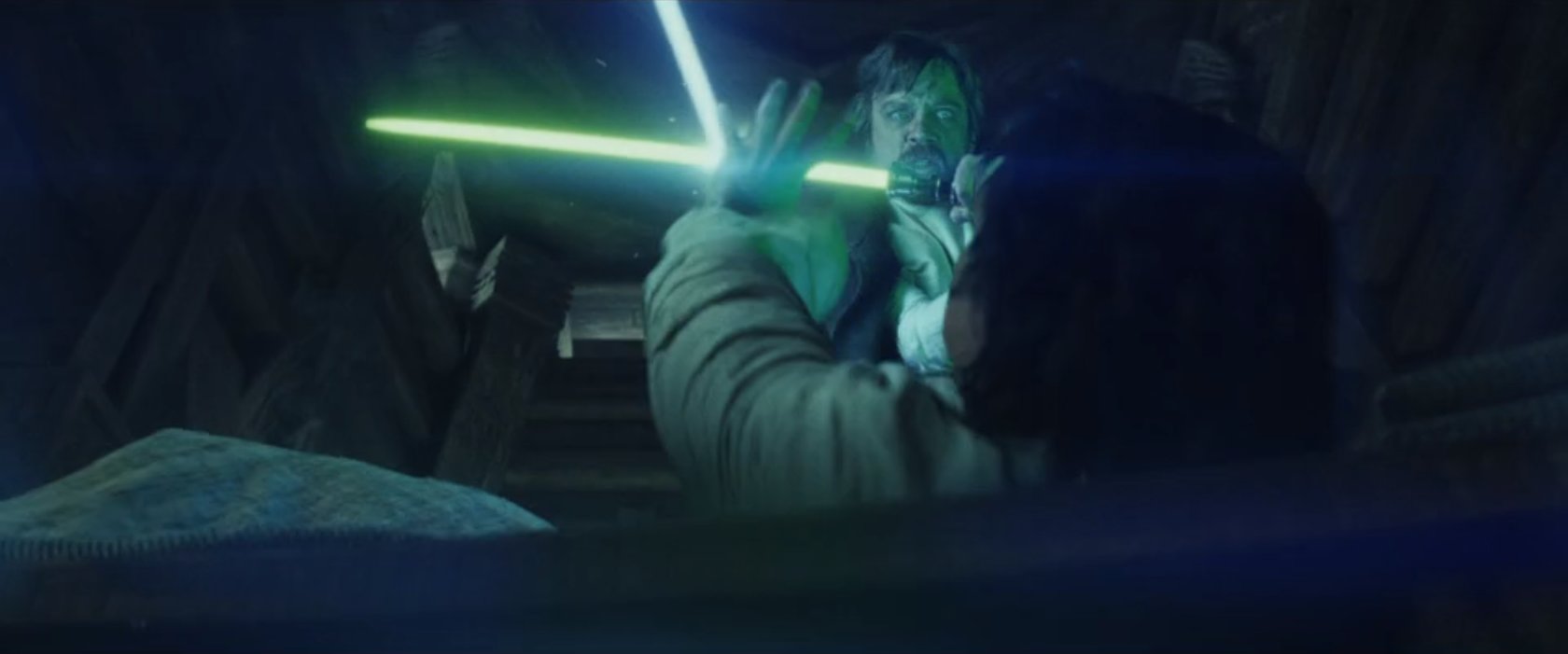
How Different People Perceive These Story Elements Demonstrates Their Subjective Nature
People who like #TheLastJedi have low expectations, low standards, and high tolerance for poor writing. If they do constitute the majority, they are a mob that is proud of being satisfied with mediocrity. That's the standard Star Wars will aspire to now.
— Dr. Thala Siren (@DrThalaSiren) April 12, 2018
Negative takes of The Last Jedi included a variety of issues like it was too long and boring, too busy to have an effect, too dire, and how frustratingly inconsistent it was with its terrible elements. Much of the spectrum of opinion is based on what people value most, and how those values are portrayed in the film. It’s not as clear-cut as strong supporters and detractors both seem to make it out.
Imagine reading a stellar article with numerous spelling and grammatical issues. If you’re bothered by those types of mistakes, it’s hard to enjoy and appreciate the written piece (even when they're minor). And for each of us fans, these problems are different. It could be the writing, story, themes, flow, editing, acting, or some other variable.
Where people have reasons they hate the movie, others use those same reasons for why they love it. While many believe their conclusions are objective and true, it's not the entire story. Like we found with Luke's betrayal with Kylo Ren, the whole story does not include one side of history. It includes the bigger picture, the larger understanding.
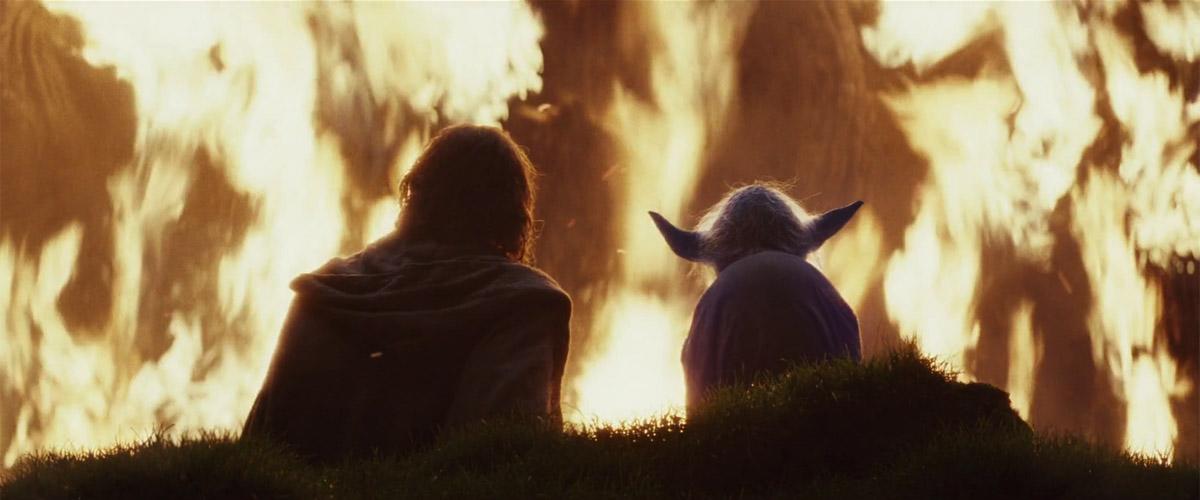
When It Comes To Evaluation, We Care About Different Things Differently
It does what it does extremely well. It does what I expected really badly.
— Charlotte Gore is a Techno Bard (@CharlotteGore) April 10, 2018
What we bring changes how we receive and interpret the movie. And, it goes both ways. My earlier example of the tree burning was a positive example of why I valued the intricate messages of the movie. An example of the flip-side is those who had an adverse reaction to the Holdo and Dameron storyline. It seems many people were in disbelief or upset by it, because of what they brought to the movie and how they interpreted this aspect of the movie.
On the extreme, many fans have disowned The Last Jedi saying Star Wars is no longer for them and they should move on. Ironically, these types of statements make me think of Luke’s story arc in The Last Jedi. And like with him, maybe there is hope for these fans walking away, they’ll come to appreciate the film after letting go of their expectation. It's also interesting it wasn't the prequels that caused them to abandon Star Wars, but the sequels. It's much more personal because the old characters are playing a role.
So while I have my issues with this movie, I find myself on the side of enjoying and appreciating it because the good far outweighs any of the negatives. I’m also entirely grateful for how well this film moves Star Wars forward setting up a foundation for a bright and strong future. With much of the film's criticism falling apart when I use the same standard with the previous movies, when I evaluate the movie as part of a larger narrative, and when I look at the film from different perspectives, it indicates that there is something else at play outside the craft of filmmaking in the divisive response to the movie. Like I mentioned earlier, it involves what people value, how they relate to the movie, and the expectations they bring.
As fans, we can look at the movie in denial like Luke, twisted like Kylo Ren, innocently like Rey, or we can choose to step back and evaluate all aspects of the things we like and don't like for a better and deeper understanding of the movie. Going through this process has helped me establish an appreciation for the richness of this film and the wonderful included pieces that make up the whole.
To become better thinkers, we need to make room for the stories to come, especially when it may not be the one we're expecting.
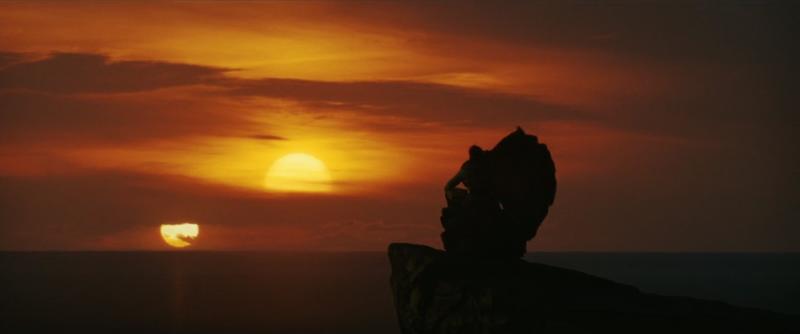
Explore The Last Jedi With Extra Interesting Tidbits
The Last Jedi Betterment Series
The following elements didn't make the final cut of the article, but I thought they were worth sharing.
- Watch Alternative The Force Awakens Ending Video: My primary criticism of The Last Jedi is similar to that of The Dark Knight Rises. This includes the clunky transition between the two films and the choppy first acts. While leaving us on a cliffhanger as we meet Luke at the end of The Force Awakens, The Last Jedi is forced to leverage the momentum to move the Rey & Luke story forward, but during the first section of The Last Jedi, this takeoff feels somewhat choppy (editing & pacing). Maybe there was a simple way to end the film, set the expectation for what was to come while also allowing the next story to move forward more smoothly?
- The Backlash In Numbers: On the Last Jedi IMDB rating page, it shows an usually large amount of 1-star reviews and they're driven almost entirely by age 30+ males. This percentage is over twice as much as the Phantom Menace. It'll be interesting to see if the movie's 1-star rating stays at 6.2% over the next several years.
- Did Holdo have to drive the ship? Even with Autopilot, something can always go wrong (or communication severed) and in that scenario, I'd want someone in control in case that happened (because of the stakes involved). I actually find more of an issue with the captains who stay with the secondary ships that run out of fuel and get blown up because those didn't seem necessary. With Holdo, it makes sense to me.
- Giant Plot Hole: If you want to know the biggest plot hole with The Last Jedi head on over to Youtube with Jenny Nicholson and she'll fill you in here.
- Additional Reads: 5 Reasons The Last Jedi Is Exquisite and the Backlash Must Stop & Rian Johnson Understands What Star Wars Needs to Do in Order to Survive
